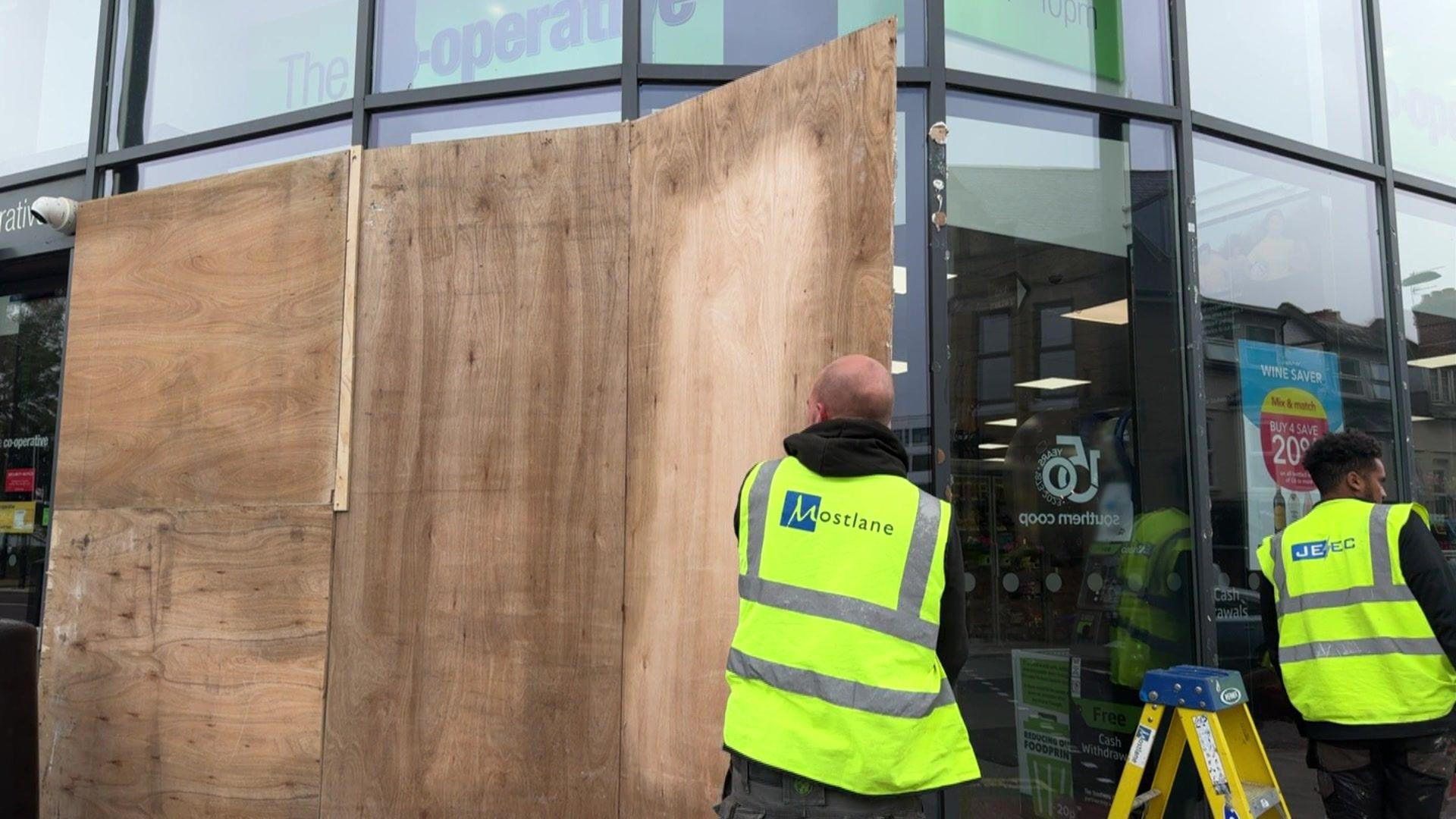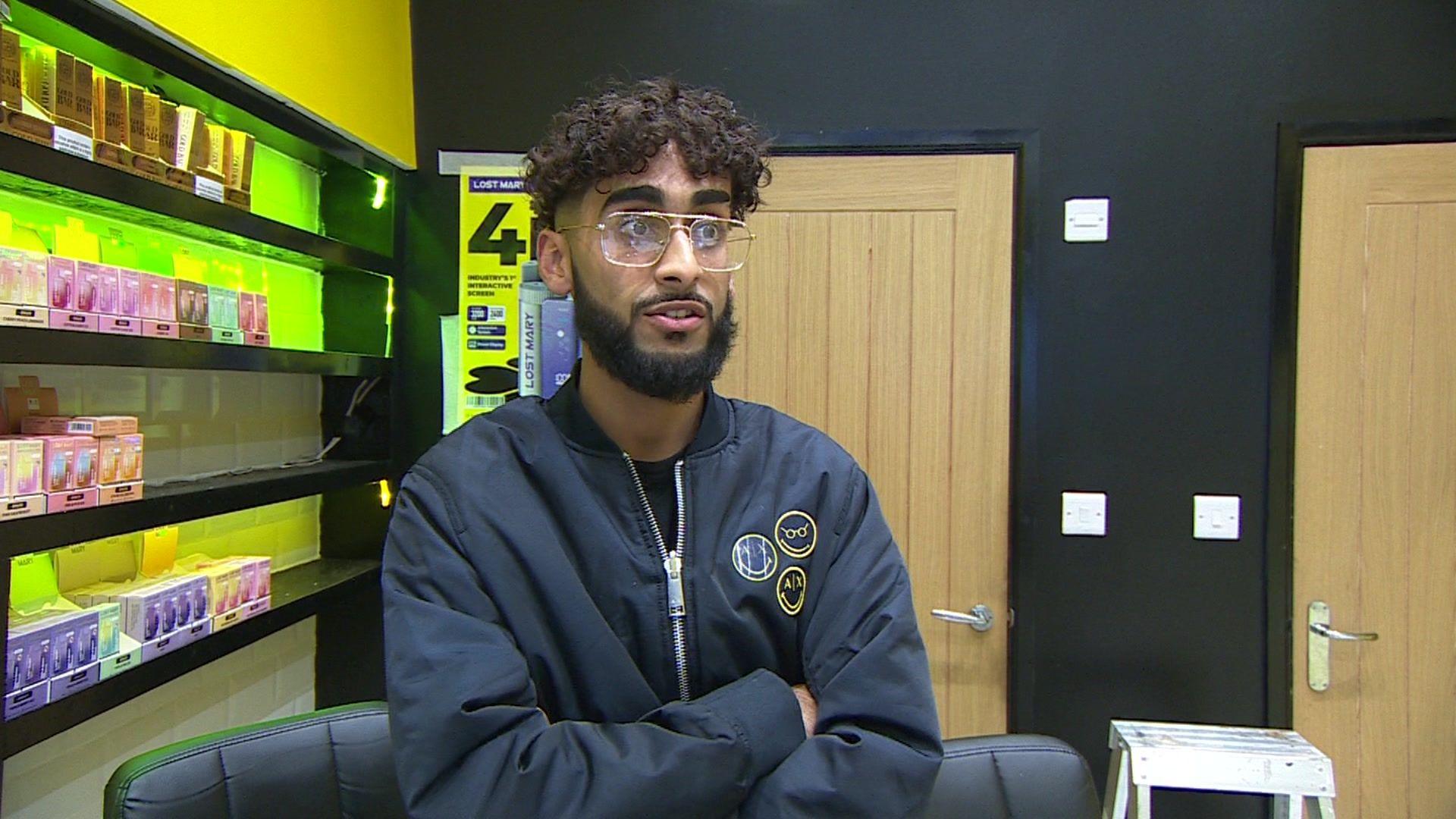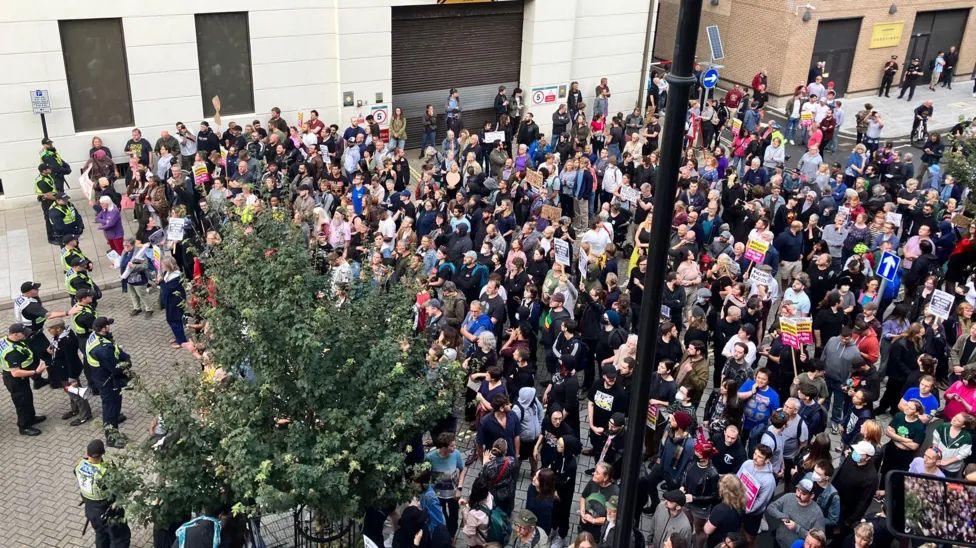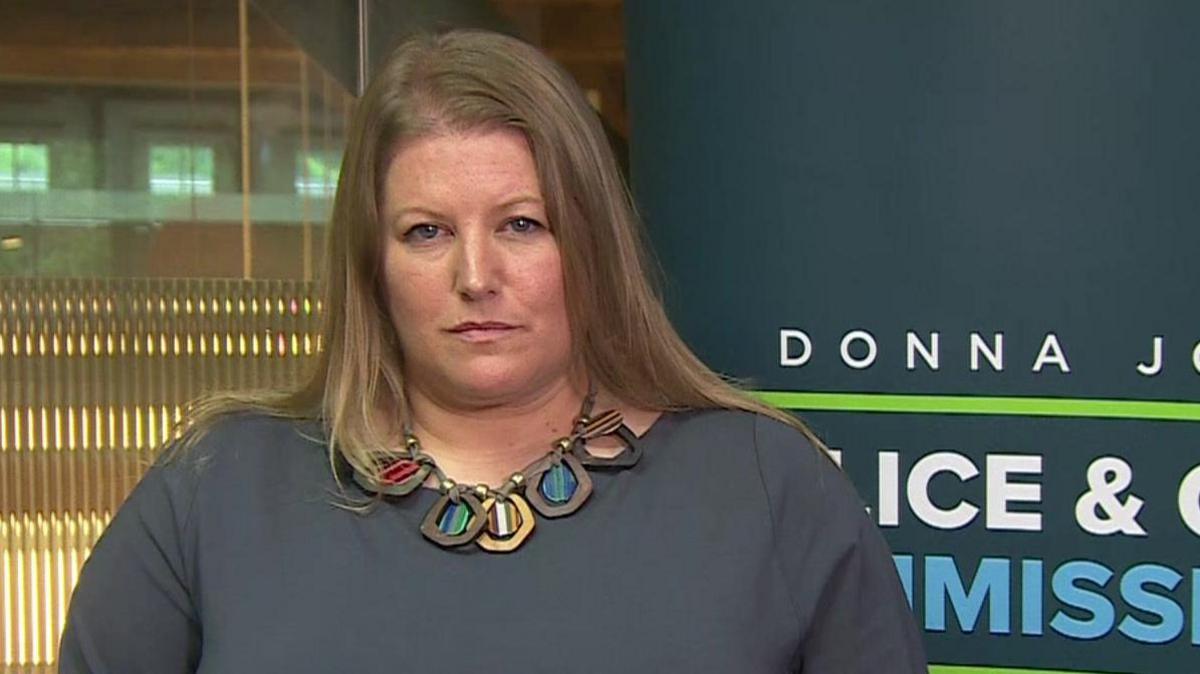Businesses count cost after disorder fears

Hoardings on shop windows were taken down on Thursday morning
- Published
Businesses have returned to normal trading after the disruption caused by fears of potential disorder.
In Southampton, up to 400 people gathered and chanted "racists go home" on Wednesday evening, outnumbering about 50 opposing protestors.
Business owners in the city centre reported a vastly reduced footfall, with many deciding to shut early.
Hampshire Police and Crime Commissioner (PCC) Donna Jones said it had been a "very, very difficult night" for police.

Ahad Zulfukar said the streets were quiet outside his vape store
Portsmouth appeared to have the largest anti-immigration protest in Hampshire - where up to 200 people blocked Mile End Road, just outside the city’s ferry port, and a 17-year-old boy was arrested.
Shops and offices in Southampton city centre, where two men were arrested, boarded up windows and shut early on Wednesday following police warnings about possible disorder.
There was a feeling of relief on Thursday after the evening of protest and counter-protest on the streets passed off largely peacefully.
Linda Turnbull, who co-owns a takeaway in London Road, said: "We shut at 5pm and, as it happened, nothing really materialised but we did lose quite a lot of money, obviously having to shut."
Imogen Gilbert, of a nearby cafe, said: "It was quite scary...
"We had to close early as we didn't know what was going to happen.
"It was so quiet - no-one wanted to be out."
Another shop worker Ahad Zulfukar said: "All the shops had closed - you could hear a pin drop.
"It was so quiet here, no-one on the streets.
"We did have the doors shut and brought the stock inside. No-one was coming in."

Up to 400 counter-protesters assembled in Southampton
The demonstrations followed a week of disturbances in parts of England and Northern Ireland after the fatal stabbing of three girls in Southport - with unrest fuelled by misinformation online.
There had been outbreaks of violence in towns and cities across England and in Northern Ireland, including in Plymouth, Sunderland, Belfast, Rotherham, Manchester and London.
On Wednesday, thousands of counter-protesters took to the streets, with thousands of police deployed across England poised for more than 100 possible events.

Police and crime commissioner Donna Jones paid tribute to the work of police
Ms Jones said Wednesday had seen one of the largest police operations in the county in recent years.
"What we saw was lots of communities coming together to send a really clear message to violent people trying to create hate and division - 'this is not happening in our communities'"
Ms Jones, who is also chair of the Association of Police and Crime Commissioners was criticised for comments at the weekend in which she said arresting people for disorder was "treating the symptom and not the cause" of civil unrest.
She insisted she wanted an "intelligent conversation".
"There is a separation between criminals, people who are rioting and those who are exercising their lawful right to protest.
"My job is to represent people's views - the lawful protestors, people who are frustrated and those communities who are living in fear.
"There has to be a wider conversation, nationally, to eradicate these divisions which are clearly very present."
She said lawful protestors had "frustration" over access to public services.
"It's that pressure on public services and the speed of immigration over the past one to two decades that really is causing so much concern for a percentage of the communities that live here."
Follow BBC South on Facebook, external, X, external, or Instagram, external. Send your story ideas to south.newsonline@bbc.co.uk, external.